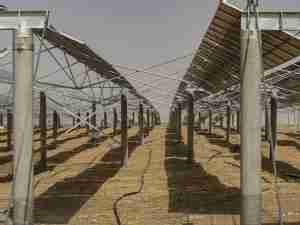Taiwan’s industrial production unexpectedly dropped in September as a slump in global demand and especially in China continued to hurt the economy.
Industrial production fell 4.8% last month from a year ago, data from Taiwan’s Ministry of Economic Affairs showed Monday. That was far lower than the median estimate of 0.4% growth in a Bloomberg survey of economists, and a decline from August’s increase of more than 3%. It was the worst performance since March 2019, when industrial output plunged more than 9% year-on-year.
Manufacturing output makes up the vast majority of industrial production. Demand for manufactured goods was weaker due to a “slowdown in global economic growth, which led to weakening demand from end users for goods, plus industrial chain inventory adjustments,” according to a statement from the ministry accompanying the data.
China’s lockdowns were a drag on output due to sluggish demand for LCD panels and basic metals, leading to lower product prices, said Kevin Wang, an economist at Taishin Securities Investment Advisory Co.
September’s drop “is just the beginning,” he said, adding that “we may see continuing decline for the following months, as Covid lockdowns in China are not over yet.” Those restrictions will affect prices and demand, as will Europe’s economic downturn and a fall in iPhone demand in the US, Wang added.
Taiwan’s economy is under pressure this year, with exports contracting last month for the first time since 2020. Export orders, which are an indicator of future demand, declined in September for the third time this year as demand from China continued to fall.
The economics ministry said in its Monday statement that while the manufacturing sector will get some help from “strong demand” for emerging technology such as 5G and high-performance computing, along with the launch of new consumer electronics, there are other challenges to growth.
High global inflation, the Russia-Ukraine war, and China’s Covid Zero strategy “may continue to disrupt the growth outlook of the international market and add to downward pressure on the world economy, in turn affecting the performance of the manufacturing sector,” the statement said.





